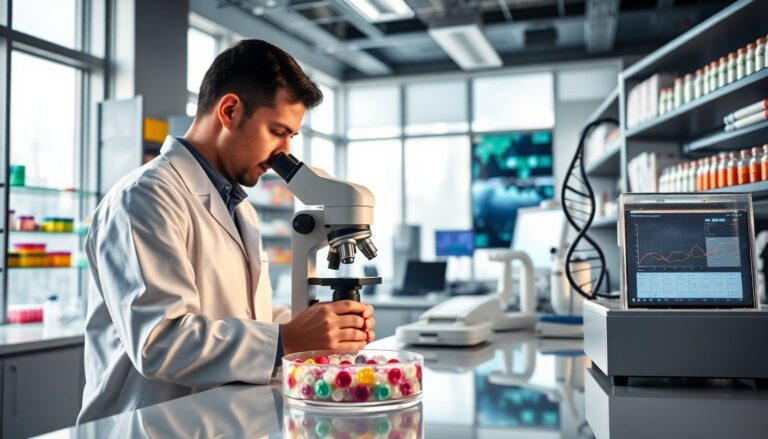Argomenti trattati
As we stand on the brink of a new era in medicine, biotechnology has emerged as a powerful tool that promises to transform healthcare. From gene editing to personalized medicine, advancements in biotech are reshaping the approach to diseases and their treatment. Given the rapid pace of innovation, it is essential to explore the future impact of biotechnology on healthcare and its implications for patients and practitioners.
The integration of biotechnology into healthcare is not merely a trend; it represents a paradigm shift that could enhance patient outcomes dramatically. Developments in this field aim not only at treating diseases but also at improving prevention methods and facilitating earlier diagnoses. This article examines some of the key areas where biotechnology is poised to make significant strides.
The role of gene editing in healthcare
One of the most promising areas of biotechnology is gene editing. Technologies such as CRISPR have revolutionized our ability to edit genes with precision and efficiency. This groundbreaking approach allows scientists to alter specific sequences of DNA, opening the door to treatments for genetic disorders once deemed incurable. For instance, conditions like sickle cell anemia and cystic fibrosis could potentially see curative therapies emerge from this technology.
Ethical considerations and challenges
However, with great power comes great responsibility. The ethical implications surrounding gene editing cannot be overlooked. The potential for designer babies and unintended consequences raises questions about the limits of scientific intervention. As we navigate the future of biotechnology, establishing guidelines and regulations that ensure the responsible application of these technologies will be essential. A dialogue among scientists, ethicists, and policymakers is crucial to fostering innovation while safeguarding public interest.
Personalized medicine and patient care
Another critical aspect of biotechnology’s future in healthcare is the advent of personalized medicine. This approach tailors medical treatment to individual characteristics, often based on genetic makeup. By leveraging biomarkers and genetic information, healthcare providers can create targeted therapies that are more effective and have fewer side effects compared to traditional treatments.
Advancements in diagnostics
The impact of biotechnology on diagnostics is also noteworthy. Advances in molecular diagnostics enable earlier detection of diseases, such as cancers and infectious diseases, at stages when they are more treatable. Techniques like next-generation sequencing allow for comprehensive genomic profiling, providing insights that help clinicians make informed decisions regarding treatment options.
Biotechnology in vaccine development
Recent global health crises have underscored the importance of biotechnology in vaccine development. The rapid development of vaccines for COVID-19, using mRNA technology, showcased biotechnology’s potential to respond swiftly to emerging health threats. This method expedited the vaccine rollout and set the stage for future vaccines against other infectious diseases.
The future of vaccine innovation
Looking ahead, the focus will be on enhancing vaccine efficacy and adaptability. Combining biotechnology with traditional vaccine approaches may lead to more robust immune responses and longer-lasting protection. The ability to rapidly produce and modify vaccines will be critical in addressing future pandemics, ensuring better preparedness for unforeseen health challenges.
The future of healthcare is closely intertwined with advancements in biotechnology. From gene editing and personalized medicine to innovative vaccine development, the implications of these technologies are profound. While embracing potential benefits, addressing the ethical challenges that arise is vital. A balanced approach prioritizing patient safety and ethical considerations will be paramount in realizing biotechnology’s full potential in healthcare.

